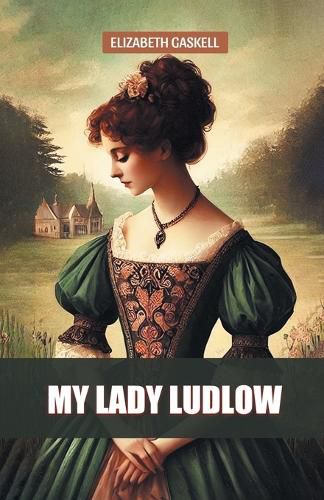Readings Newsletter
Become a Readings Member to make your shopping experience even easier.
Sign in or sign up for free!
You’re not far away from qualifying for FREE standard shipping within Australia
You’ve qualified for FREE standard shipping within Australia
The cart is loading…






"My Lady Ludlow" by Elizabeth Cleghorn Gaskell is a novella exploring social class, duty, and societal change through the lens of a young woman's experiences with a noblewoman. The story begins with the narrator reflecting on her childhood and her family's economic struggles following her father's death. The turning point comes when Lady Ludlow, a traditional and aristocratic woman, offers to help the narrator's family. As the story unfolds, the contrast between Lady Ludlow's conservative values and the emerging ideas of progress, particularly regarding education and social mobility, becomes apparent. The narrative reveals Lady Ludlow's insistence on maintaining the social order while grappling with the evolving roles of women and the lower classes. Key figures like the new clergyman, Mr. Gray, challenge these traditional views, creating tension between duty, tradition, and compassion. The story highlights the conflict between old social norms and the new possibilities for progress, particularly regarding education and social change, setting the stage for deeper reflections on societal evolution.
$9.00 standard shipping within Australia
FREE standard shipping within Australia for orders over $100.00
Express & International shipping calculated at checkout
"My Lady Ludlow" by Elizabeth Cleghorn Gaskell is a novella exploring social class, duty, and societal change through the lens of a young woman's experiences with a noblewoman. The story begins with the narrator reflecting on her childhood and her family's economic struggles following her father's death. The turning point comes when Lady Ludlow, a traditional and aristocratic woman, offers to help the narrator's family. As the story unfolds, the contrast between Lady Ludlow's conservative values and the emerging ideas of progress, particularly regarding education and social mobility, becomes apparent. The narrative reveals Lady Ludlow's insistence on maintaining the social order while grappling with the evolving roles of women and the lower classes. Key figures like the new clergyman, Mr. Gray, challenge these traditional views, creating tension between duty, tradition, and compassion. The story highlights the conflict between old social norms and the new possibilities for progress, particularly regarding education and social change, setting the stage for deeper reflections on societal evolution.